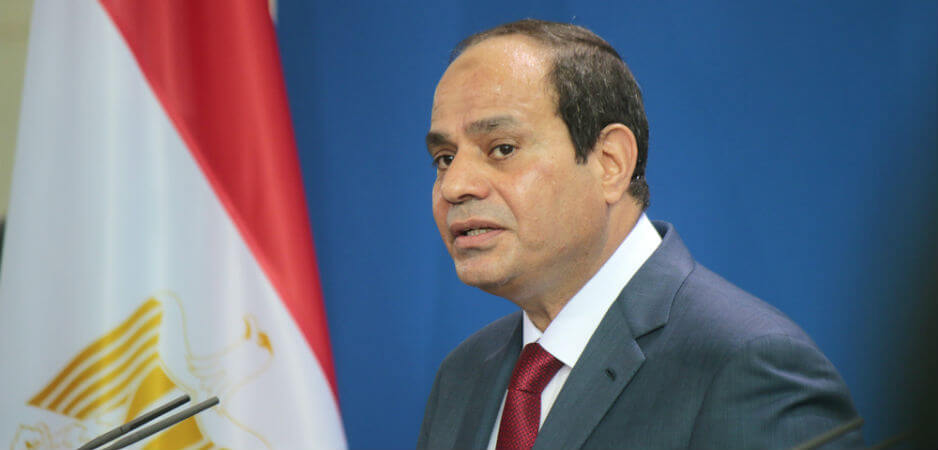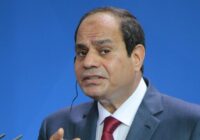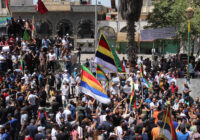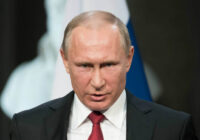The international community should support Sisi if they want to see a more stable Middle East, says Josef Olmert.
Since the 1952 coup d’état by the Free Officers Movement, Egypt has had six presidents. Abdel Fattah al-Sisi, the incumbent president, is in the same league with at least two seminal names in modern Egyptian and Arab history: Gamal Abdel Nasser and Anwar Sadat.
Although Sisi is still in their shadow, it may not be for too long. The quiet general is fast becoming an important political figure. The Egyptian leader is still not a revolutionary, but he is certainly a man of original approaches to the challenges around him—a reformer in the making.
If he becomes a fully-fledged reformer, he may well be the modern-day version of Muhammad Ali Pasha, the man who led reforms in Egypt throughout the early 19th century.
Most Important Arab Nation
Egypt is not just an Arab and Middle Eastern country. Rather, it is Egypt that is the most important Arab state in the region. Contrary to conventional wisdom, it is not the rich Saudi Arabia that is entitled to be defined as the most important Arab nation.
Egypt is a country of so many “firsts” in the modern history of the Middle East: the first to be occupied by a European power; the first to introduce Western-style reforms; the first to be connected to world commerce through the Suez Canal; the first to experience a popular revolutionary reaction to the fall of the Ottoman Empire in the form of the Muslim Brotherhood; the first to turn to the Soviet bloc with Nasser at the helm; and the first to make peace with Israel, which completely changed the strategic landscape of the Arab-Israeli conflict, rendering any Arab military option against Israel virtually impossible and irrelevant.
It is in this context that we must examine what has already been achieved by President Sisi.
He had to deal with the Muslim Brotherhood in power after democratic elections, including a year of internal turmoil characterized by a concerted effort by the Brotherhood to turn Egypt into a theocratic dictatorship. In one year, Egypt sunk so fast toward the abyss with Syrian- and Iraqi-style chaos behind the door.
Yes, democracy is about elections, but not only that. It is also about the rule of law, respect for minorities and political dialogue rather than coercion from above. The murdered Christian Copts, the burnt churches and even a killing campaign against the tiny Shia minority provided dramatic evidence of the so-called Islamic democracy of the Muslim Brotherhood.
Sisi saved Egypt from the inevitable anarchy that was awaiting the country with daily atrocities by the Brotherhood. This was a great contribution not only to Egypt, but to the entire Middle East. Can we even imagine the course of events in the region if the Muslim Brotherhood were allowed to stay in power? An Egypt ruled by the movement could have been the catalyst for a regional Islamic revolution—much like how Nasser was behind a regional eruption of Pan-Arabism in the 1950s and 60s that threatened to turn the entire Middle East upside down.
This is the point where some readers may raise their eyebrows in astonishment with the question: “And what is it now if not an Islamic volcanic eruption”?
Arab Spring
The surprising answer is no, it is not. Libya, Iraq and Syria have been going through turmoil for years, even prior to 2011. The conflicts in these countries cannot be considered anymore as a manifestation of popular Sunni movements, as the 2011 uprisings were replaced and taken over by a terrorist movement known as the Islamic State, or ISIS, which may have some support but not enough. In Syria and Iraq, we have a local sectarian struggle being dominated by a regional power struggle.
The popular wave of an Islamic revolution was checked and stopped in Egypt due to the decisive actions of Sisi—surely one of his greatest achievements to date, if not the greatest.
President Sisi did not stop there. As a real reformer, he had this to say to the religious leaders of Al-Azhar: “Does this mean that 1.6 billion people [Muslims] should want to kill the rest of the world’s inhabitants … Impossible!” Brave and unprecedented words from a devoted Muslim leader to the men of religious rulings at the highest institution of the Muslim world.
The Egyptian president has said a lot more about other contentious issues. He ordered the declaration of Hamas as a terrorist movement, conducting a sustained and successful campaign against the group’s terror tunnels in the Gaza Strip. During the Israeli-Hamas confrontation of 2014, Egypt all but supported Israel, denouncing Hamas in the harshest possible terms.
This is not a whimsical policy of revenge against Hamas for its participation in the Muslim Brotherhood’s actions in Egypt. It is part of a careful strategy to give useful and meaningful substance to the Egyptian-Israeli peace treaty.
In the midst of a terror campaign against Israel, known as the so-called “Knives Intifada,” Egypt restored its full diplomatic relations with Israel. Sisi even went as far as considering the possibility of giving a portion of the Egyptian-controlled Sinai to the Palestinians as a solution to the harsh living conditions in Gaza—clearly a suggestion that is popular in Israel.
More Stable Middle East
Simply put, we have a leader who wants to solve problems rather than create and exacerbate them; a leader who deals with sacred cows; a leader who puts aside demagogy and incitement in favor of rational political discourse.
The Egyptian president is not shying away from the chronic economic problems of his country. He knows that the legacy left behind by years of stagnation under former President Hosni Mubarak, a year of destruction under the Muslim Brotherhood, and the continued anti-tourist campaign of terror are his litmus test. Bread and butter to the masses will determine it all in Egypt.
This is where the Saudis and other Arab Gulf states come into the picture. And this is where the United States, the European Union and Israel should also play a role.
Support for the Sisi government should become a project of highest priority to those who want to see a more stable Middle East. We cannot lose time over that. A brave, potentially great leader and 90 million people are waiting to see what will be done.
The views expressed in this article are the author’s own and do not necessarily reflect Fair Observer’s editorial policy.
Photo Credit: 360b / Shutterstock.com
 We bring you perspectives from around the world. Help us to inform and educate. Your donation is tax-deductible. Join over 400 people to become a donor or you could choose to be a sponsor.
We bring you perspectives from around the world. Help us to inform and educate. Your donation is tax-deductible. Join over 400 people to become a donor or you could choose to be a sponsor.
Support Fair Observer
We rely on your support for our independence, diversity and quality.
For more than 10 years, Fair Observer has been free, fair and independent. No billionaire owns us, no advertisers control us. We are a reader-supported nonprofit. Unlike many other publications, we keep our content free for readers regardless of where they live or whether they can afford to pay. We have no paywalls and no ads.
In the post-truth era of fake news, echo chambers and filter bubbles, we publish a plurality of perspectives from around the world. Anyone can publish with us, but everyone goes through a rigorous editorial process. So, you get fact-checked, well-reasoned content instead of noise.
We publish 2,500+ voices from 90+ countries. We also conduct education and training programs
on subjects ranging from digital media and journalism to writing and critical thinking. This
doesn’t come cheap. Servers, editors, trainers and web developers cost
money.
Please consider supporting us on a regular basis as a recurring donor or a
sustaining member.
Will you support FO’s journalism?
We rely on your support for our independence, diversity and quality.






